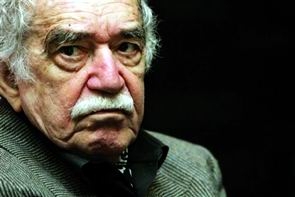(单词翻译:单击)
名著阅读
José Arcadio Buendía, who was the most enterprising man ever to be seen in the village, had set up the placement of the houses in such a way that from all of them one could reach the river and draw water with the same effort, and he had lined up the streets with such good sense that no house got more sun than another during the hot time of day. Within a few years Macondo was a village that was more orderly and hard working than any known until then by its three hundred inhabitants. It was a truly happy village where no one was over thirty years of age and where no one had died.
Since the time of its founding, José Arcadio Buendía had built traps and cages. In a short time he filled not only his own house but all of those in the village with troupials, canaries, bee eaters, and redbreasts. The concert of so many different birds became so disturbing that úrsula would plug her ears with beeswax so as not to lose her sense of reality. The first time that Melquíades' tribe arrived, selling glass balls for headaches, everyone was surprised that they had been able to find that village lost in the drowsiness of the swamp, and the gypsies confessed that they had found their way by the song of the birds.
That spirit of social initiative disappeared in a short time, pulled away by the fever of the magnets, the astronomical calculations, the dreams of transmutation, and the urge to discover the wonders of the world. From a clean and active man, José Arcadio Buendía changed into a man lazy in appearance, careless in his dress, with a wild beard that úrsula managed to trim with great effort and a kitchen knife. There were many who considered him the victim of some strange spell. But even those most convinced of his madness left work and family to follow him when he brought out his tools to clear the land and asked the assembled group to open a way that would put Macondo in contact with the great inventions.
霍·阿·布恩蒂亚是村里最有事业心的人,他指挥建筑的房屋,每家的主人到河边去取水都同样方便;他合理设计的街道,每座住房白天最热的时刻都能得到同样的阳光。建村之后过了几年,马孔多已经成了一个最整洁的村子,这是跟全村三百个居民过去住过的其他一切村庄都不同的。这是一个真正幸福的村子;在这村子里,谁也没有超过三十岁,也还没有死过一个人。
建村的时候,霍·阿·布恩蒂亚开始制作套索和鸟笼。很快,他自己和村中其他的人家都养了金驾、金丝雀、蜂虎和知更鸟。许多各式各样的鸟儿不断地嘁嘁喳喳,乌苏娜生怕自己震得发聋,只好用蜂蜡把耳朵塞上。梅尔加德斯一伙人第一次来到马孔多出售玻璃球头痛药时,村民们根本就不明白这些吉卜赛人如何能够找到这个小小的村子,因为这个村子是隐没在辽阔的沼泽地带的;吉卜赛人说,他们来到这儿是由于听到了鸟的叫声。
可是,霍·阿·布恩蒂亚为社会造福的精神很快消失,他迷上了磁铁和天文探索,幻想采到金子和发现世界的奇迹。精力充沛、衣着整洁的霍·阿·布恩蒂业逐渐变成一个外表疏懒、衣冠不整的人,甚至满脸胡髭,乌苏娜费了大劲才用一把锋利的菜刀把他的胡髭剃掉。村里的许多人都认为,霍·阿·布恩蒂亚中了邪。不过,他把一个袋子搭在肩上,带着铁锹和锄头,要求别人去帮助他开辟一条道路,以便把马孔多和那些伟大发明连接起来的时候,甚至坚信他发了疯的人也扔下自己的家庭与活计,跟随他去冒险。
背景阅读

作者简介:
加西亚·马尔克斯(1927一)哥伦比亚作家,记者。生于马格达莱纳省阿拉卡塔卡镇。父亲是个电报报务员兼顺势疗法医生。他自小在外祖父家中长大。外祖父当过上校军官,性格善良、倔强,思想比较激进;外祖母博古通今,善讲神话传说及鬼怪故事,这对作家日后的文学创作有着重要的影响。
加西亚·马尔克斯作品的主要特色是幻想与现实的巧妙结合,以此来反映社会现实生活,审视人生和世界。重要作品有长篇小说《百年孤独》(1967)《家长的没落》(1975)、《霍乱时期的爱情》(1985)等。
本书简介:
《百年孤独》内容复杂,人物众多,情节离奇,手法新颖。马尔克斯在书中溶汇了南美洲特有的五彩缤纷的文化。他通过描写小镇马孔多的产生、兴盛到衰落、消亡,表现了拉丁美洲令人惊异的疯狂历史。小说以“汇集了不可思议的奇迹和最纯粹的现实生活”荣获1982年诺贝尔文学奖。
创作历程:
从1830年至十九世纪末的70年间,哥伦比亚爆发过几十次内战,使数十万人丧生。本书以很大的篇幅描述了这方面的史实,并且通过书中主人公带有传奇色彩的生涯集中表现出来。政客们的虚伪,统治者们的残忍,民众的盲从和愚昧等等都写得淋漓尽致。作家以生动的笔触,刻画了性格鲜明的众多人物,描绘了这个家族的孤独精神。在这个家族中,夫妻之间、父子之间、母女之间、兄弟姐妹之间,没有感情沟通,缺乏信任和了解。尽管很多人为打破孤独进行过种种艰苦的探索,但由于无法找到一种有效的办法把分散的力量统一起来,最后均以失败告终。这种孤独不仅弥漫在布恩迪亚家族和马孔多镇,而且渗入了狭隘思想,成为阻碍民族向上、国家进步的一大包袱。
作家写出这一点,是希望拉丁美洲民众团结起来,共同努力摆脱孤独。所以,《百年孤独》中浸淫着的孤独感,其主要内涵应该是对整个苦难的拉丁美洲被排斥现代文明世界的进程之外的愤懑[mèn]和抗议,是作家在对拉丁美洲近百年的历史、以及这块大陆上人民独特的生命力、生存状态、想象力进行独特的研究之后形成的倔强的自信。这个古老的家族也曾经在新文明的冲击下,努力的走出去寻找新的世界,尽管有过畏惧和退缩,可是他们还是抛弃了传统的外衣,希望溶入这个世界。可是外来文明以一种侵略的态度来吞噬这个家族,于是他们就在这样一个开放的文明世界中持续着“百年孤独”。作者表达着一种精神状态的孤独来批判外来者对拉美大陆的一种精神层面的侵略,以及西方文明对拉美的歧视与排斥。“羊皮纸手稿所记载的一切将永远不会重现,遭受百年孤独的家族,注定不会在大地上第二次出现了。” 作者用一个毁灭的结尾来表达了自己深深的愤懑。


